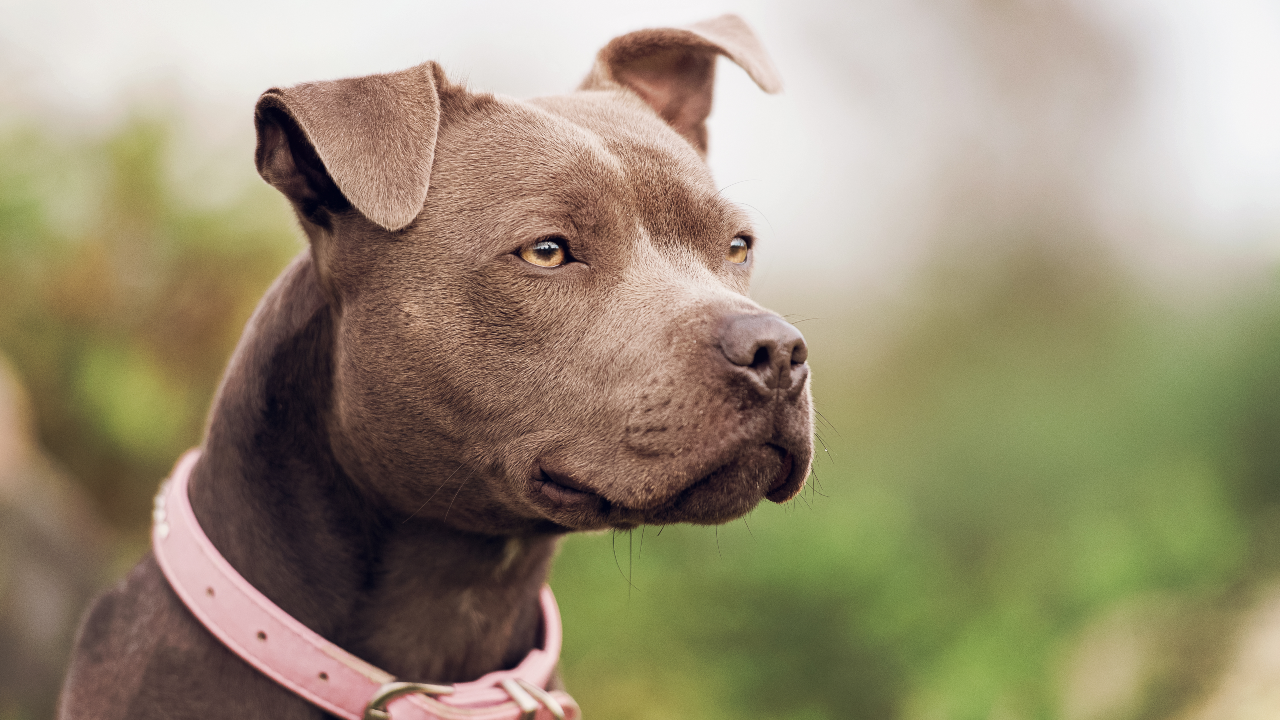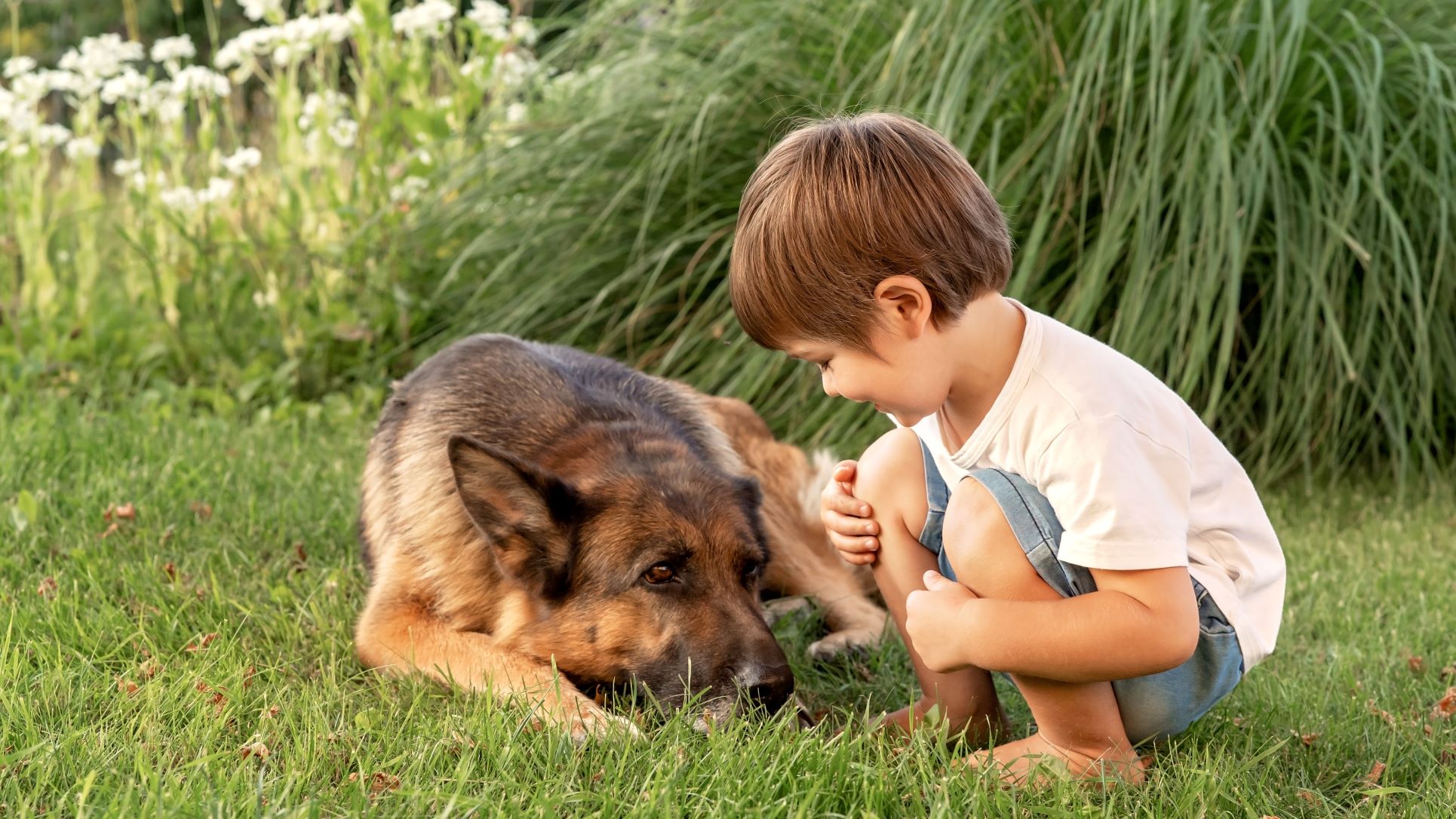German Shepherd vs Pit Bull: Which makes the best family pet?
It’s German Shepherd vs Pit Bull in the ring as we find out which of these two loving canine companions is the best fit for your family

- German Shepherd vs Pit Bull: Origins
- German Shepherd vs Pit Bull: Size
- German Shepherd vs Pit Bull: Bite force
- Is a Pit Bull stronger than a German Shepherd?
- Are Pit Bulls good family dogs?
- Are German Shepherds good family dogs?
- German Shepherd vs Pit Bull: Exercise needs
- Are German Shepherds smarter than Pit Bulls?
Get the best advice, tips and top tech for your beloved Pets
You are now subscribed
Your newsletter sign-up was successful
When it comes to considering a German Shepherd vs Pit Bull, you may be struggling to decide which of these two breeds is right for you. And we can’t say we blame you! While both have a reputation for being tough and high energy, they’re also incredibly loyal and loving, which can make choosing between them a challenge.
Known for being two of the most affectionate dog breeds, the German Shepherd and Pit Bull love a good cuddle with those they consider family. However, the Pit Bull is much more sociable when it comes to strangers, whereas the German Shepherd tends to be wary of those they don’t know — making them one of the best guard dog breeds.
If you have small children in the family, you’ll be delighted to learn that with the right training and socialization, both the German Shepherd and the Pit Bull can make wonderful companions. Fun-loving, patient, and gentle, Pit Bulls make fantastic playmates, while the German Shepherd’s protective instincts means they’ll always be watching over those they love.
To help you decide which of these two breeds is right for you and your family, we’ve done a deep dive into both. From intelligence and activity levels to size and strength, here’s everything you need to know about the German Shepherd and Pit Bull to ensure you choose the right canine companion for you.
German Shepherd vs Pit Bull: Origins
Pit Bulls are derived from Old English Bulldogs and Old English Terriers and their history dates back to the 1800s. Imported into the United States in the 1870s, they were used for dog fighting and rat baiting which is why they have a reputation for being dangerous and aggressive. But as you'll see from our round-up of Pit Bull facts, reality is not always what it seems.
German Shepherds, meanwhile, were bred as sheep herding dogs in Germany in the late 19th century and they were also used by the German military to assist soldiers in the First World War. As working dogs, they have long proven to be adaptable to many situations; our list of German Shepherd facts will show you how amazing they can be.
German Shepherd vs Pit Bull: Size
Of the two breeds, Pit Bulls are much smaller. As medium-sized dogs, they are generally between 17 and 21 inches in height compared to between 22 and 26 inches for a German Shepherd. Pit Bulls also weigh far less – pop them on a scale and they'll be an average of 50 pounds whereas an adult German Shepherd can be as heavy as 95 pounds.
Get the best advice, tips and top tech for your beloved Pets
There's clearly a significant difference between the two and yet Pit Bulls appear better defined. You can see their muscles because they're not hidden by long hair. As a result of this, they appear to be stronger and stockier than a German Shepherd, attributes which go a long way to cementing their reputation as a breed to be wary of. There's no getting around the fact that they can look a little scary.
German Shepherd vs Pit Bull: Bite force

You may have seen those police shows where German Shepherds are used to apprehend suspected criminals. When they catch someone, they lock their jaws on to the person's body and often this will draw blood, even if they're wearing a thick coat. There's a reason for this. German Shepherds have a bite force of 238 pounds per square inch which is a significant amount of pressure (a human bite force is 162 PSI).
Now you may think we're about to say, “but that's nothing compared to a Pit Bull”, yet that's not actually the case. A Pit Bull has a bite force of 235 PSI which is lower than a German Shepherd. That's still significant, of course, and when you look at statistics such as those compiled by DogsBite.org, you can see how devastating such bites can be. That website suggests Pit Bulls are responsible for 69 percent of fatal dog attacks.
Is a Pit Bull stronger than a German Shepherd?
If you simply put the bite force head-to-head, there's not much to choose between the two but strength is, of course, more than simply how strongly a dog can chomp. Both are muscular and, as we saw earlier, you can actually see these on a Pit Bull. This breed is also heavy for its size with more muscles per pound of body weight than any other.
A key determining factor here is how these two dogs are bred. Train a Pit Bull to fight (don't!) and there is no doubt it would win despite being smaller because German Shepherds don't have the fighting instinct. Pit Bulls also hold and shake, refusing to let go once they sink their teeth. But that's not to say that Pit Bulls are little monsters. Far from it. The truth is much more subtle than that.
Are Pit Bulls good family dogs?
It's important to address this and so we'll do each breed separately to be clear. It may sound as if Pit Bulls are going around picking fights and biting anyone who happens to cross their path but that's not the case. Yes, Pit Bulls are banned in many countries including, from 1991, the United Kingdom, but how they respond usually depends on their background and training.
If they are well-trained and socialized from a young age – and that is very important – then a Pit Bull will prove to be fun-loving, patient, loyal, affectionate and gentle. In that sense, they will indeed become great family pets but children still need to be taught to be respectful and not to play rough or poke and prod. Owners must also be confident and assert their authority.
Are German Shepherds good family dogs?

So now we look at the question: Are German Shepherds good family dogs?
Again, with training, German Shepherds make for cracking pets. They get on extremely well with children and other animals and they will become loyal and protective of a family. It's why they make for good watch dogs although that can unnerve strangers so be aware of that when having guests around.
This breed is also great for active households. You will definitely need the time to take a German Shepherd for daily walks and to ensure that they are mentally stimulated as well (the best durable dog toys are a must). If your family life is more hectic and time-poor, then it may be best to consider a different breed.
German Shepherd vs Pit Bull: Exercise needs
Neither of these dogs are couch potatoes. We've already seen that German Shepherds need to be kept active and you're looking at at least two hours each day if you're to have any chance of ridding them of excess energy and boredom. You also need to take into account German Shepherd health issues and make sure they're not overdoing it.
Pit Bulls need less activity but not by much. You also have to be more wary of where you exercise them. They have a high prey drive so taking them to the local park and letting them run around off-leash is a massive no-no. They must remain leashed and even muzzled in many instances. Having a large, secure yard is important to give them sufficient space to run.
Are German Shepherds smarter than Pit Bulls?
Both breeds are highly intelligent yet stubborn, so bear that in mind when training them. Of the two, we're going to bow to the knowledge imparted by Stanley Coren, the professor of canine psychology, whose book, The Intelligence of Dogs, has become something of an authority.
German Shepherds rank third in Coren's list. The highest ranking dogs that can represent Pit Bulls – the American Staffordshire – ranked 48 which is still high. Pit Bulls are certainly easy to train. They like to please their favorite people and love being praised. German Shepherds are easier, though, which is why they are used by the police, the military and more. German Shepherds are easy to house-train too.
For more great canine content, check out our guides to how to calm a reactive dog and how to stop a dog from jumping up.

David Crookes has been a journalist for almost 30 years and he has written for a host of magazines, newspapers, websites and books including the World of Animals Annual, BBC Earth, Live Science, The Independent and Tom’s Guide.
Born in England, he lives with two cats but he’s also keenly interested in the differences between the huge number of dog breeds – in fact, you can read many of his breed guides that he’s written in collaboration with vets here on PetsRadar.
With a lifelong passion for technology, too, he’s always on the lookout for useful devices that will allow people to keep their pets happier and healthier, and provide them more time to spend together.
David has a degree from Durham University, as well as postgraduate diploma in journalism from the University of Central Lancashire.
